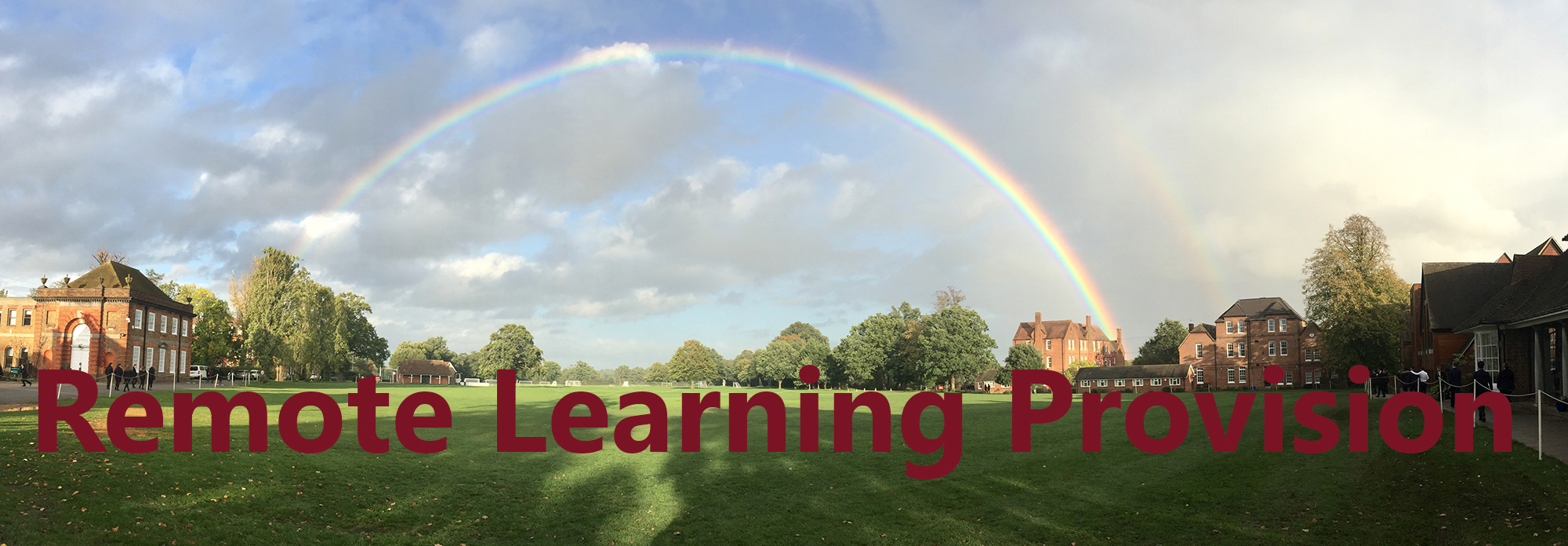Information for Parents
This information is intended to provide clarity and transparency to pupils and parents or carers about what to expect from remote education where national or local restrictions require entire cohorts (or bubbles) to remain at home.
For details of what to expect where individual pupils are self-isolating, please see the final section of this page.
The remote curriculum: what is taught to pupils at home
A pupil’s first day or two of being educated remotely might look different from our standard approach, while we take all necessary actions to prepare for a longer period of remote teaching.
What should my child expect from immediate remote education in the first day or two of pupils being sent home?
All lessons moved to online programme via Teams resulting in no interruption to teaching and learning.
Following the first few days of remote education, will my child be taught broadly the same curriculum as they would if they were in school?
We teach the same curriculum remotely as we do in school wherever possible and appropriate. However, we have needed to make some adaptations in certain subjects e.g. in practical subjects.
Remote teaching and study time each day
How long can I expect work set by the school to take my child each day?
We expect that remote education (including remote teaching and independent work) will take pupils broadly the following number of hours each day:
Key Stage 3 and 4 - Approximately 5 - 6 hours of online teaching provided each day
Accessing remote education
How will my child access any online remote education you are providing?
Via Teams, Show my Homework and subject specific software packages.
If my child does not have digital or online access at home, how will you support them to access remote education?
We do not believe this to be the case for any of our pupils and have worked to ensure every child has access.
How will my child be taught remotely?
We use a combination of the following approaches to teach pupils remotely:
• Predominantly live teaching via Teams (online lessons)
• use of educational apps eg Kerboodle, Mathswatch, educake
• textbooks and reading books pupils have at home
• reference to commercially available websites eg BBC bitesize supporting the teaching of specific subjects or areas, including video clips
• long-term project work and subject specific competitions eg essay prizes
• Daily fitness programme via Instagram
• Off Screen project days
Engagement and feedback
What are your expectations for my child’s engagement and the support
that we as parents and carers should provide at home?
• To attend all lessons with sound and camera on where possible
• To submit assessed work as required
• Parents to support the School’s expectations and their child’s engagement and well being
How will you check whether my child is engaging with their work and how will I be informed if there are concerns?
• Via normal school systems – highly effective channels of communication between pastoral staff and home
• Regular reporting schedules including grades for effort
• Parents’ consultation evenings online
How will you assess my child’s work and progress?
Feedback can take many forms and may not always mean extensive written comments for individual children. For example, whole-class feedback or quizzes marked automatically via digital platforms are also valid and effective methods, amongst many others. Our approach to feeding back on pupil work is as follows:
• Via regular feedback on assessed work – written, verbal and whole class feedback.
• Via use of apps which provide online marking and feedback for specific subjects
Additional support for pupils with particular needs
How will you work with me to help my child who needs additional support from adults at home to access remote education?
We recognise that some pupils, for example some pupils with special educational needs and disabilities (SEND), may not be able to access remote education without support from adults at home. We acknowledge the difficulties this may place on families, and we will work with parents and carers to support those pupils in the following ways:
Pastoral teams, via House systems, continue to provide support to parents and make regular contact with home
SENDCO contact with home to provide individual support.
Use of parental survey to gauge where support is most required.
Remote education for self-isolating pupils
Where individual pupils need to self-isolate but the majority of their peer group remains in school, how remote education is provided will likely differ from the approach for whole groups. This is due to the challenges of teaching pupils both at home and in school.
If my child is not in school because they are self-isolating, how will their remote education differ from the approaches described above?
Via existing online platforms and use of cameras to live streamed lessons where possible. Assessment work and lesson content will posted on Teams regularly. Children who are ill will be supported with catching up by the provision of recorded lessons and other materials.

